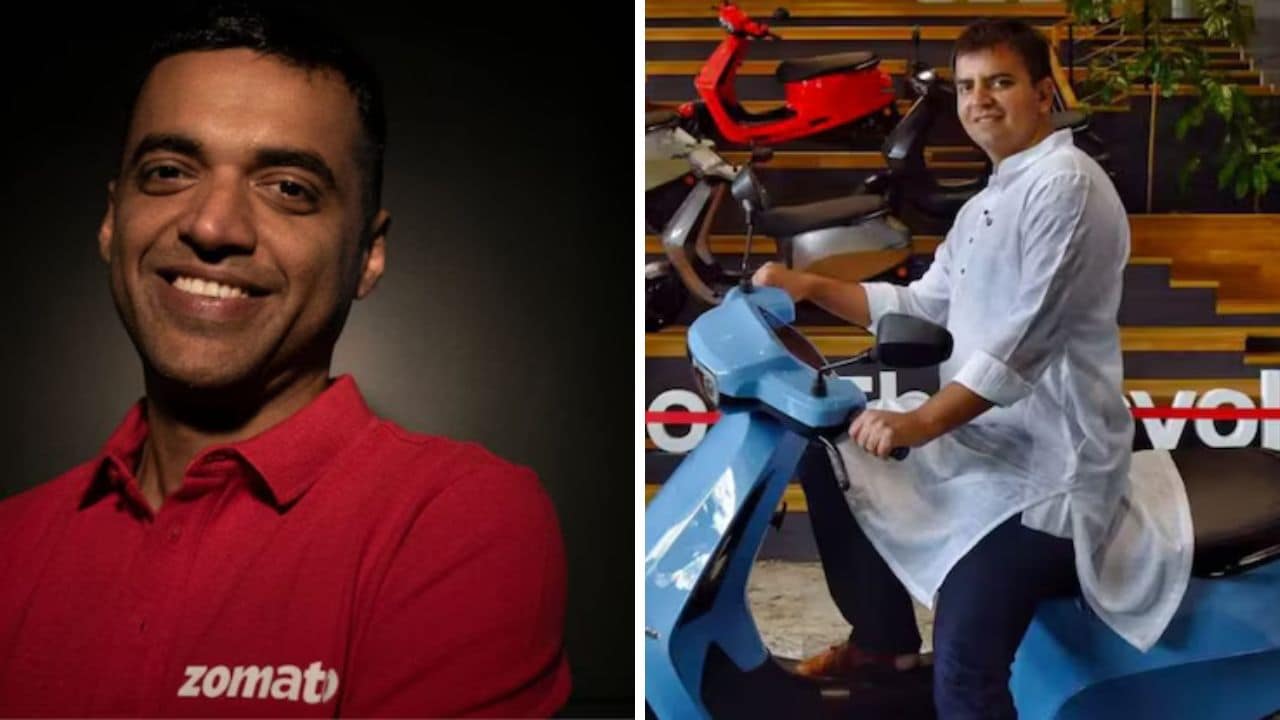The new-age CEO believes in leading from the front. In an era marked by rapid technological evolution and global uncertainty, that applies to talent acquisition as well, which is no longer just an HR function — it’s becoming a critical responsibility of organisational leaders. CEOs across industries are stepping out of the boardroom, directly engaging with prospective talent, particularly at premier schools like the Indian Institutes of Management, Indian Institutes of Technology and the Indian Institute of Science.
Bhavish Aggarwal, CEO of Ola, is a prime example of this shift. Recently, Aggarwal has been personally visiting India’s premier educational institutions to scout for fresh talent. In a tweet, he shared his excitement about meeting young minds, emphasising his hands-on approach to building the future of Ola.
Or take Deepinder Goyal, CEO of Zomato, who has also been making news with his unconventional hiring practices. Goyal’s direct involvement in the search for a chief of staff, using social media to appeal to a global audience, attracted massive attention and highlighted the increasing trend of CEOs leveraging their personal brands to recruit top-tier talent.
Beyond resumes
Viswanath PS, managing director and CEO of staffing company Randstad India, said of this trend, “Over the last few years, there has been a significant shift in recruitment approaches — a combination of traditional hiring and new-age methods showcasing employer branding. Some CEOs prefer to connect directly with young talent and promote their companies’ as forward-thinking and dynamic workplaces. By engaging through campus visits and leveraging social media, they strive towards creating relatability, making the hiring process more inspiring and appealing to talent.”
With years of leadership and decision-making behind them, CEOs often possess the ability to identify talent with exceptional potential, particularly those who demonstrate leadership qualities and a long-term alignment with the company’s vision. Their perspective enables them to go beyond evaluating technical skills, focusing instead on qualities like adaptability, strategic thinking, and cultural fit—traits that are critical for driving sustained growth and innovation.
This approach, though, he added, is generally limited to startups or smaller organisations where HR teams are not as large or equipped. Typically, the CEO of a larger company, while overseeing the talent acquisition processes, would devote a larger chunk of their time on operational and strategic matters and entrust the nitty-gritty of enrolling key personnel — at least in the early stages – to talent companies and recruitment experts.
Premium talent for strategic roles
While the top management of these next-gen companies are on the prowl for talent, their search is limited to the cream of the academic crop, as underlined by Siddharth Verma, head of Xpheno Executive Search: “Premium pedigree talent—IIT-IIM especially—is being increasingly sought for building or re-directioning the enterprise future, vis-a-vis more operational needs. The operational talent needs are serviced by quality talent supply available from a host of other tier-1 and tier-2 institutions as well.”
Some of the specialist roles for the premium pedigree talent include being part of the CEOs office and other leadership teams. Verma explained that roles such as administrative leads or executive assistants to the CEO, or entailing business strategy and planning need handpicked talent, and are hence closely overseen by the CXOs themselves.
Their presence on campus, then allows them to directly assess the resources at hand, and to ascertain whether the candidates are suited to the way they think and operate. A direct, first-hand briefing of the mandate to the institution heads is also what determines the sharpest shortlist pool.
This selective approach underscores the increasing focus on leadership roles that can drive long-term organizational transformation, a key priority for companies navigating an uncertain global economy.
From tradition to transformation
While CEO involvement brings precision to hiring, it’s also redefining traditional recruitment processes. As Kartik Narayan, CEO of staffing at TeamLease Services, put it, “For critical functions like sales, or in the dynamic stages of a startup, a CEO’s active role in key hiring decisions can signal the importance of the role and inspire the right talent to join. Sometimes, even hiring for junior roles becomes an opportunity for a CEO to set the tone for the organisation, underscoring how every position contributes to the bigger picture.”
This engagement can streamline hiring by eliminating multiple layers of decision-making, as highlighted by Verma, or in some cases, extending the timeline due to the heightened expectations CEOs bring. Regardless, it signals the growing importance of aligning talent acquisition with organisational strategy.
Academic institutions bridging the gap
India’s premier institutions are responding to this trend by grooming students with the skills modern businesses demand.
Mahadeo Jaiswal, director IIM Sambalpur, said, “The trend also highlights the role of value-based leadership where CEOs are seeking analytical thinking, emotional intelligence and agility in decision-making. These qualities align with current industry trends of sustainability, inclusivity and strategic agility. As businesses are adapting to global challenges, the focus of hiring talent is to navigate uncertainty, championing the power of inclusivity and technology.”
Read More:Zomato CEO Deepinder Goyal seeks ‘Chief of Staff’ with a unique offer
